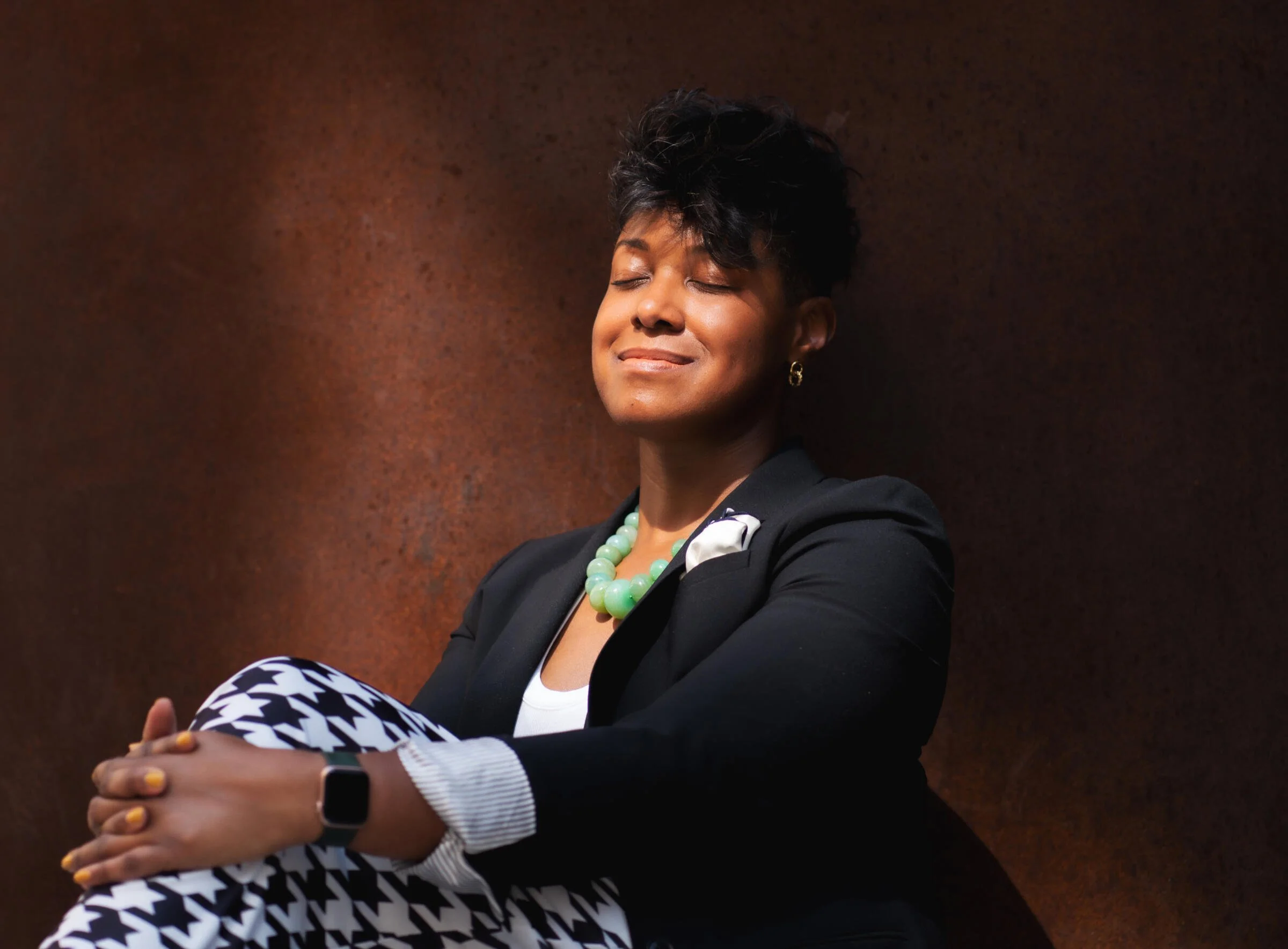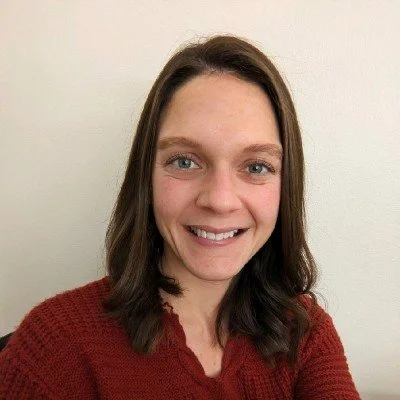
Feel Whole
Behavior and culture change for leaders and organizations who want to do good, better.

Leaders,
Organizations,
and the World of Work
have a responsibility to contribute
to the process of
Becoming Whole
But deep patterns of disconnect are standing in the way of what might be.
-
One of the first lessons we learn as newborns is how to listen to and respond to our body's cues. As we grow into adults, many of us are taught (implicitly or explicitly) how to suppress or ignore those messages in favor of “doing whatever it takes to get the job done”, contributing to repetitive cycles of self-sacrifice, burnout, and stress. Bringing back online our ability to detect, interpret, and act on the messages and rhythms of our body enables us to stay grounded in the pacing and activities that challenge us to grow in productive (vs harmful) ways.
-
Increasing polarization has led many of us down the path of othering & breaking in our relationships. The act of perceiving someone as not just different but as lesser (othering) leads us to sanction systems and practices that deny the humanity and complexity of the “other” (breaking). We have a responsibility to center our “sense of self” in our kinship with other beings — both human and more-than-human — as well as practice reaching across lines of difference to tend relationships and systems rooted in shared humanity, participation, recognition, and agency in co-creating the world we live in.
-
If you were raised in a Western-industrial culture, you were likely given myths that depicted the natural world as pristine, far-away, there-to-be-used, wild, primitive, untouched, and so on. But many indigenous traditions (i.e., those who have sustained human life in a place for millennia) carry Knowledges that challenge the idea that we humans are separate from the land, air, water, plants, animals, etc. at all. Instead, these Peoples remember and remind us what all of our ancestors at some point knew. Each of us has a ‘biological kinship’ with the waters that sustain us, the foods that fill our bellies, and the medicines that restore our health. This perspective assumes a reciprocal relationship of tending to one another (humans and more-than-human) through myriad interlocking forms of support. By re-establishing this connection, leaders can guide their organizations toward things like regenerative practice, seeking to sustain a harmonious tension between their economic endeavors and the health of our planet.
Join a global movement of leaders to repair these disconnects and transition our workplaces to become…
RESTORATIVE
RESILIENT &
REGENERATIVE

WELCOME to
Life-Centered Growth
Life-Centered Growth is in everything we do at Kapwa Leadership.
Through this lens, we help you go from wanting restorative, regenerative, and resilient ways of working and cultures to actually building them.
This is the future of leadership.
This is the future of organizations.
This is the future of our planet.

Join us in dreaming of a
not-too-distant future
We believe in a future where organizations have stepped off the sidelines, embedding social and environmental challenges into their business models.
We’re working with some amazing clients…
Work Redefined.
We are more than our productivity. Envision a future where work centers life, letting individuals excel daily within supportive, purposeful networks that understand the natural rhythms of productivity & renewal.
Organizations Restructured.
Rising global mistrust in institutions points to a disheartening truth - they've let us down. Let’s steer toward a future where trust and trustworthiness are at the organization's center: power is democratically distributed, hierarchies flattened, and incentives truly aligned with long-term objectives.
Change
Remade.
Some of the most meaningful changes cannot be forced or controlled. Creating the conditions ripe for change in ourselves and our organizations makes us ready for entire systems to tip into new ways of being and operating.

Today…
Organizations (like many of us) are at a loss for how to navigate the so-called ‘polycrisis.‘ This is the age of interconnected systemic crises with no clear end in sight.
From the climate and mass extinction crises to future pandemics, “net energy decline” for fossil fuels, an unsustainable and unstable global food system, the simmering specter of far-right populism, the nascent threat of weaponized synthetic biology, and the destabilizing impacts of artificial intelligence on work, war, and human freedom, the list goes on. It can feel like organizations are either stumbling their way forward and/or pitching convenient narratives for the future that feel out-of-touch when we come home to our communities.
People want to be a part of organizations that aren’t just responding to these realities but actively adapting and experimenting with potential paths forward.
When the myths we live by are no longer based on consensual reality and/or empirical evidence, then a new myth must be found. It’s time to debunk the dysfunctional myths that give us ‘vision block,’ and are getting in the way of our collective ability to reimagine and redesign work & life.

Myths We Work With
-
Ecosystems demonstrate the complexity of interdependent relationships and the importance of diversity. They challenge the myth of self-sufficiency and highlight the need for collaboration and cooperation.
-
The entire purpose of organizing in the arc of human history is to do great things together. The larger web of life knows this. Social insects, such as ants and bees, challenge the belief that individualism is the most efficient way of organizing. They demonstrate the power of collective intelligence and collaboration.
-
Indigenous Knowledges (e.g., creation stories, language, land management, sustainable harvesting, decentralized governance) challenge the assumption that there ought to be a single-source-of-truth (i.e., Western scientific knowledge as superior, moral, and more valid). Instead, we are shown the possibility (and reality) that many different ways of knowing can be complementary, mutually respected, and valid.
-
Despite rhetoric from institutional strategic planning processes, social movements throughout history challenge the belief that change only happens through top-down approaches. They continue to demonstrate a range of tactics, such as grassroots organizing, redistributing power and resources, changing hearts and minds through education and shared experience, volunteering, resting / nonconsumption/nonproduction, and creating / innovating. Each of us contributes to change in big and small ways by determining what mix of these activities matches our morals and strengths.
-
Nature is neither an adversary, a set of resources to be taken from, or something we are apart from. It is a teacher that has been preparing us for generations to be ready to cope with the complexity we are facing today and that we know is coming. By restoring a reciprocal relationship with nature, we get to design sustainable commons in dynamic systems.
-
Many organizations, rooted in Western industrial notions of ownership, will view IP through one of two lenses (or a combination of both):
Protective Lens: Organizations use this lens to safeguard their creations to maintain competitive advantage, profitability, and market position.
Generative Lens: Organizations prioritize collaboration, openness, and contribution to collective knowledge. They share innovations through open-source licenses or partnerships to drive broader societal and environmental impacts.
In the Kanaka Maoli (Native Hawaiian) tradition, one does not call oneself your pet’s owner. Instead, you are their Kahu. Kahu has many meanings, including guardian, protector, steward, and beloved attendant—someone entrusted with the safekeeping of something precious, something cherished.
At Kapwa Leadership, we think carefully about our relationship and responsibility to the Knowledges we steward. We want to work with you to mindfully balance the systems used to protect intellectual property with the responsibility we have to share openly to foster collective benefit (e.g., Creative Commons, Open-source Licenses).
-
Economic theories like de-growth and the circular economy challenge the myth of infinite growth and the idea that resources are infinite. It highlights the importance of sustainability and the need for a more holistic approach to economic development.















